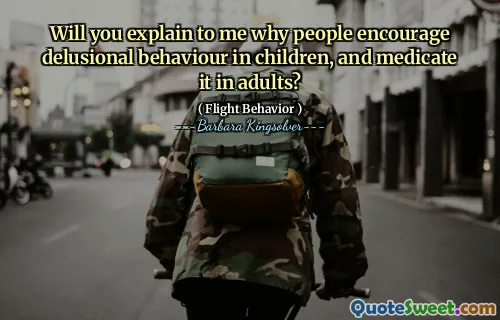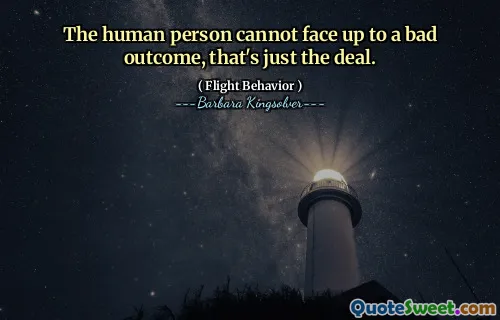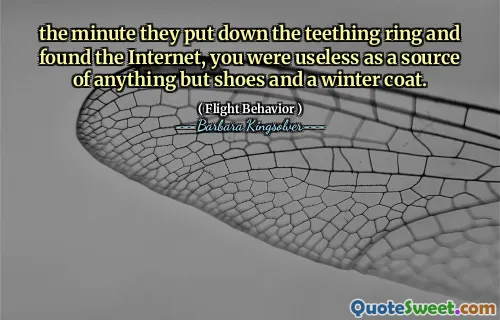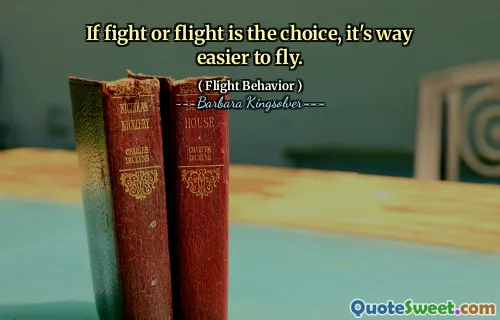
Dellarobia watched the void of this man where once there had been wonder, and she despaired of her future. In such a short time he had relieved her of a lifetime of illusions, and already she missed them.
This quote vividly captures the profound impact of disillusionment on the human spirit. Dellarobia's observation of the man's void—once filled with wonder—serves as a powerful metaphor for the loss of innocence and hope. Her recognition that her future now feels bleak reflects a universal fear: the prospect of seeing the world, or even oneself, stripped of wonder and meaning, leading to despair. The suddenness with which her illusions shattered illustrates how fragile our perceptions can be and how quickly they can be disrupted by reality. There's a poignant tension here—the craving for truth and clarity often comes at the cost of the comforting illusions we cling to. The feeling of missing those illusions underscores their importance; they provided emotional shelter, a sense of purpose and hope that now seems to have been taken away. This dynamic is especially relevant in moments of change or crisis, when confronting truth exposes uncomfortable realities that challenge our comfort zones. It prompts us to consider whether the loss of illusions is necessarily a tragedy or an inevitable step towards genuine understanding. Reality may be harsher, but it also opens the door to growth, new perspectives, and authentic connection. The emotional complexity of longing for illusions gone and facing what remains is a testament to the delicate balance between hope, disillusionment, and acceptance in the human experience.
(Book: 'Flight Behavior') (Author: Barbara Kingsolver)











